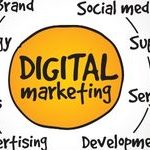Wikipedia isn’t a traditional marketing tool. Unlike popular social media platforms and organic search algorithms, Wikipedia is governed by strict verifiability standards and impartiality codes built to resist—or at least discourage—improper influence. As a neutral and impartial arbiter of information about the world around us, Wikipedia isn’t the place to make rosy, untraceable claims about how great your product or solution is.
But that doesn’t mean the online encyclopedia can’t play a crucial role in your marketing arsenal. Many entrepreneurs ignore the medium altogether on the erroneous assumption that there’s no way to turn their companies’ Wikipedia entries to their advantage.
Avoid their lead. Used properly, in keeping with best practices for creating and managing a Wikipedia page, the world’s most democratic encyclopedia is actually a fantastic marketing tool. Here’s why.

1. Wikipedia Entries Imply Legitimacy
There are millions of English-language Wikipedia pages. Many scientific and technical pages cover obscure topics and subtopics that the average person has no clue about.
That said, Wikipedia pages about people and organizations must by definition have “notable” subjects. If the topic isn’t suitably important to warrant its own page, Wikipedia’s guardians won’t let it stand. Ergo, your organization’s page is a testament to the organization’s notability—its legitimacy.
2. Google Loves Wikipedia Pages
Wikipedia pages typically do extremely well in the search engine horse race. It’s not uncommon for corporate Wikipedia pages to rank just behind actual corporate websites, ahead of major social media pages like Facebook and LinkedIn. This corporate Wikipedia page, for instance, ranks just below the company’s main site, which itself ranks below only a single paid search ad.
3. Wikipedia Is a Trusted Resource
Readers trust Wikipedia. A well-maintained corporate Wikipedia page that’s protected (to the extent permissible by the site’s bylaws) is a neutral-to-positive arbiter of useful corporate information. Prospective customers and employees use Wikipedia pages to gather what they perceive to be unbiased information about companies they’d like to work with, often ahead of corporate sites themselves, which few expect to provide an unbiased perspective. Work to keep your company’s Wikipedia page free of “issues” headers—dreaded signifiers of slapdash or suspect editing.
4. Wikipedia Is a Great Source for Images
This is a key consideration for the visual learners in your prospect pool. Effective corporate Wikipedia pages prominently feature high-res logos, key employee photos, and other visual media. Given the platform’s high search visibility, these images typically dominate Google image searches.
5. Wikipedia Is a Clearinghouse for Additional Company Information
Wikipedia is an important clearinghouse for the sort of “dry” corporate information that doesn’t (and shouldn’t) appear in traditional marketing materials: key employees, major company milestones, notable customers, quantitative details (sales, employee counts). These data points bolster your company’s case in risk-averse prospects’ eyes.
6. Press Releases Are Acceptable References—As Long As They’re Accurate
Wikipedia frowns upon blatant self-promotion in company entries, which means you can’t exactly write your Wikipedia entry like a mega-press release.
Good news: As long as they’re accurate, you can absolutely use corporate press releases as citations for claims made in your entry. When you’re just getting started, press releases are likely to be your primary means of announcing corporate milestones to the wider world. Wikipedia is an invaluable megaphone for these otherwise low-key missives.
7. You Probably Know Wikipedians
Wikipedia frowns upon self-editing. Though there’s no hard-and-fast prohibition on the practice, people directly associated with a subject—for instance, corporate marketing professionals—are discouraged from editing its Wikipedia page.
The good news: You probably know some Wikipedians. After all, Wikipedia has a vast, committed network of dedicated volunteer editors. They might be willing to lend you a hand; you won’t know until you ask.
8. Wikipedia Is a First Line of Defense
Wikipedia’s visibility and legitimacy make it a formidable weapon in your crisis communications toolbox. If it’s necessary to correct an erroneous news report or misguided rumors about your company, your Wikipedia page is the logical venue—with adequate sourcing, of course.
9. Wikipedia Is Free
Last, but definitely not least: If you play by the rules and don’t pay a third party or use company time to edit your Wikipedia page, it’ll cost you precisely nothing.











